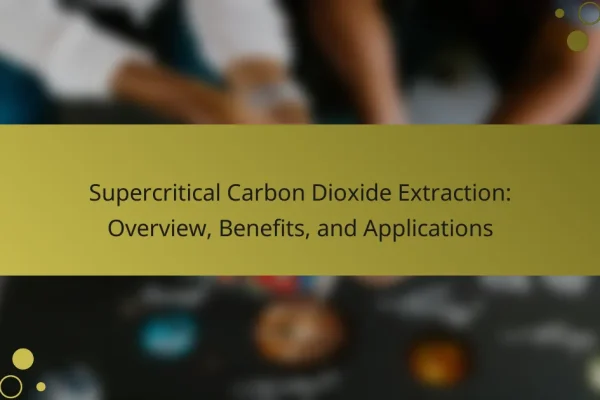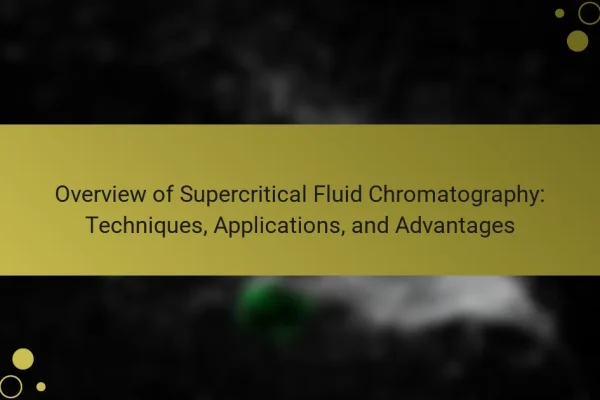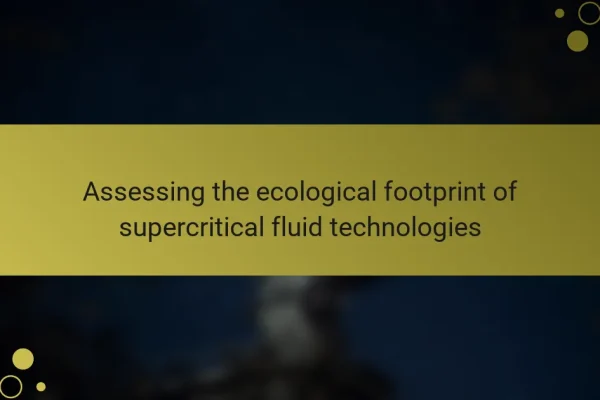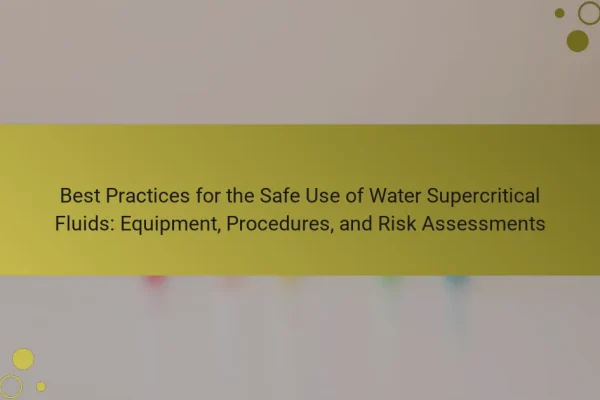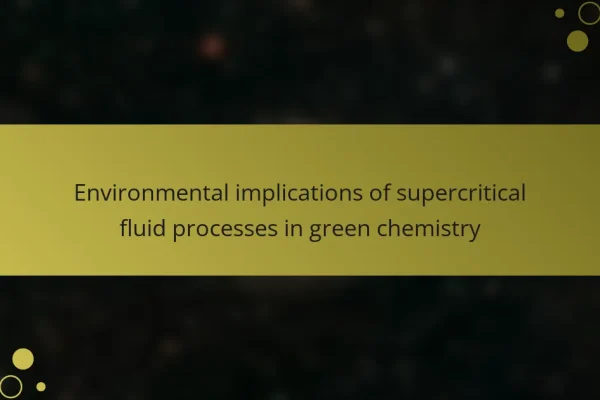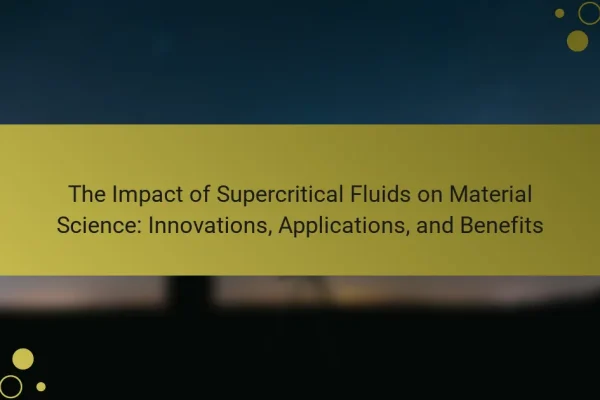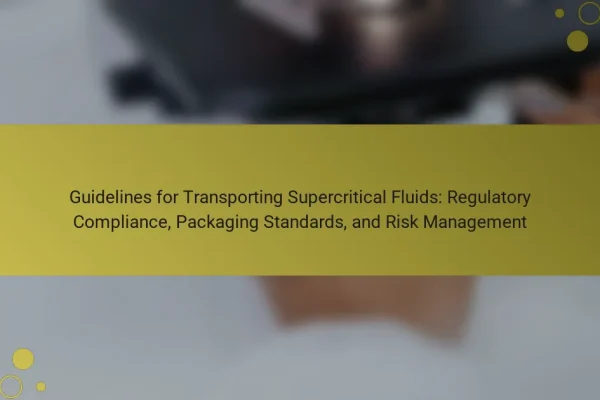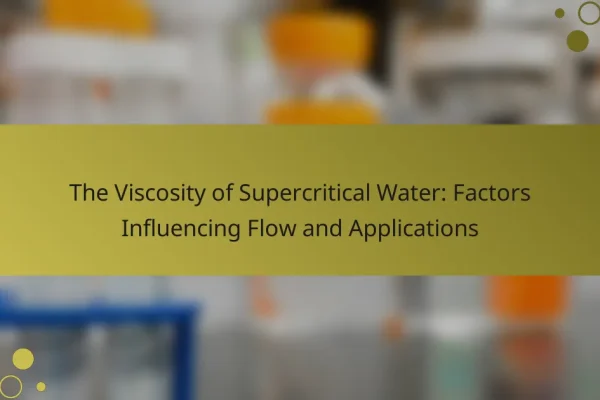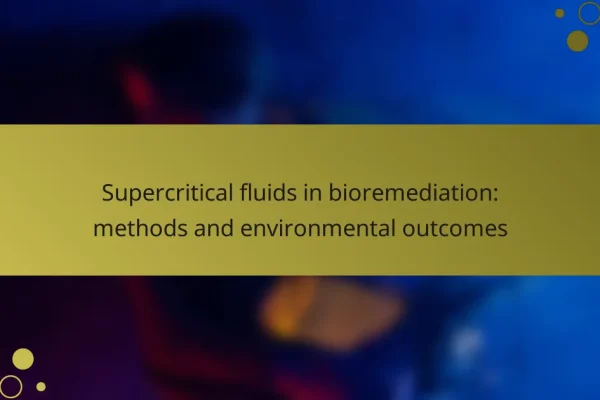
Supercritical fluids in bioremediation: methods and environmental outcomes
Supercritical fluids, defined as substances that exist above their critical temperature and pressure, play a significant role in bioremediation by enhancing the extraction and degradation of contaminants from soil and water. Their unique characteristics, such as high diffusivity and low viscosity, facilitate efficient transport of pollutants, making supercritical carbon dioxide a common choice for extracting…
